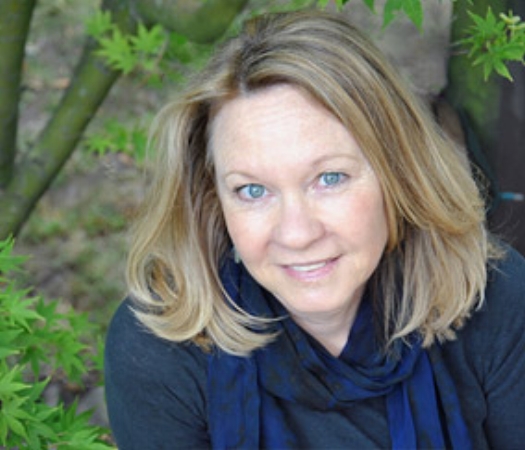WomensHistoryReads interview: Meg Waite Clayton
Today I'm thrilled to welcome to the blog Meg Waite Clayton, who wows critics and readers alike with her insightful, entrancing books. Not only a New York Times bestselling author, she was also honored by the Langham Prize committee for THE RACE FOR PARIS (which I adored.) Read more about Meg below!
Meg Waite Clayton
Greer: Tell us about a woman (or group of women) from the past who has inspired your writing.
Meg: As a group, the enormously talented and courageous women war journalists and photojournalists, including Lee Carson, Helen Kirkpatrick, Iris Carpenter, Ruth Cowan, Lee Miller, Dot Avery, Virginia Irwin, Margaret Bourke-White, and Martha Gellhorn, have inspired me. My first novel, The Language of Light, about a woman who aspires to be a photojournalist, has roots in Margaret Bourke-White's autobiography. And all my work has in some sense flown from that first novel.
My latest, The Race for Paris, draws directly from the experiences of all these World War II correspondents, who defied military regulations and gender barriers to cover the “race for Paris,” vying to be among the first to report from the liberated city in the summer of 1944. They did so by stowing away in bathrooms of Channel-crossing boats, going AWOL, hopping fences meant to contain them, struggling to get their photographs and stories out, and risking their lives. Despite being confronted with red tape and derision, denied access to jeeps and to the information and accommodations provided to their male colleagues at press camps, pursued by military police intent on returning them to the States, and even arrested and stripped of credentials, they proved that women could report from the front lines, and opened the way for generations of women to do things previously forbidden us.
Greer: And the way that you weave those truths with fiction makes for a fantastic story. How would you describe what you write?
Meg: My novels take place in different time periods, but they share a common thread in that they are--or at least are meant to be--inspirational stories about women finding the strength to overcome societal barriers unique to women. But I hope they are first and foremost not "message" but story. I like a great read that leaves me both laughing and crying, and that's what I try to write.
Greer: Yes. I've definitely done both while reading your novels! What do you find most challenging or most exciting about researching historical women?
Meg: Both challenging and exciting is the fact that there are so many amazing women in history who are not yet known, or known well enough. Exciting because that is so much story possibility. Challenging because there are only so many hours in a lifetime, and I want to write them all!
Greer: Ditto!
Meg: And for you: I'd love to know about a woman (or group of women) from the past who've inspired you. That is such a great question!
Greer: With a near-infinite number of answers, right? I'm always running across new names, but only one has inspired me enough to center an entire novel around -- Kate Warne, 19th-century detective and total bad-ass. If I were a biographer, it would have been intensely frustrating to discover that the information about her in the historical record is basically skeletal. But since I'm a historical novelist, I felt like the gaps in her story were the perfect invitation. I've said since the beginning that part of the reason I wrote the book was so more people would know her name, but only lately have I been able to articulate why her lack of name recognition bothers me so much: why do we all know the name of the man who assassinated Lincoln in 1865, but not the woman who saved his life by foiling an earlier assassination attempt in 1861? How different our country's history could have been. Get this woman into the history books!
Read more about Meg, her books, and her advice for writers at the links below:
www.megwaiteclayton.com
www.facebook.com/novelistmeg
Twitter: @megwclayton
And as always, tune in for another #womenshistoryreads review tomorrow!
